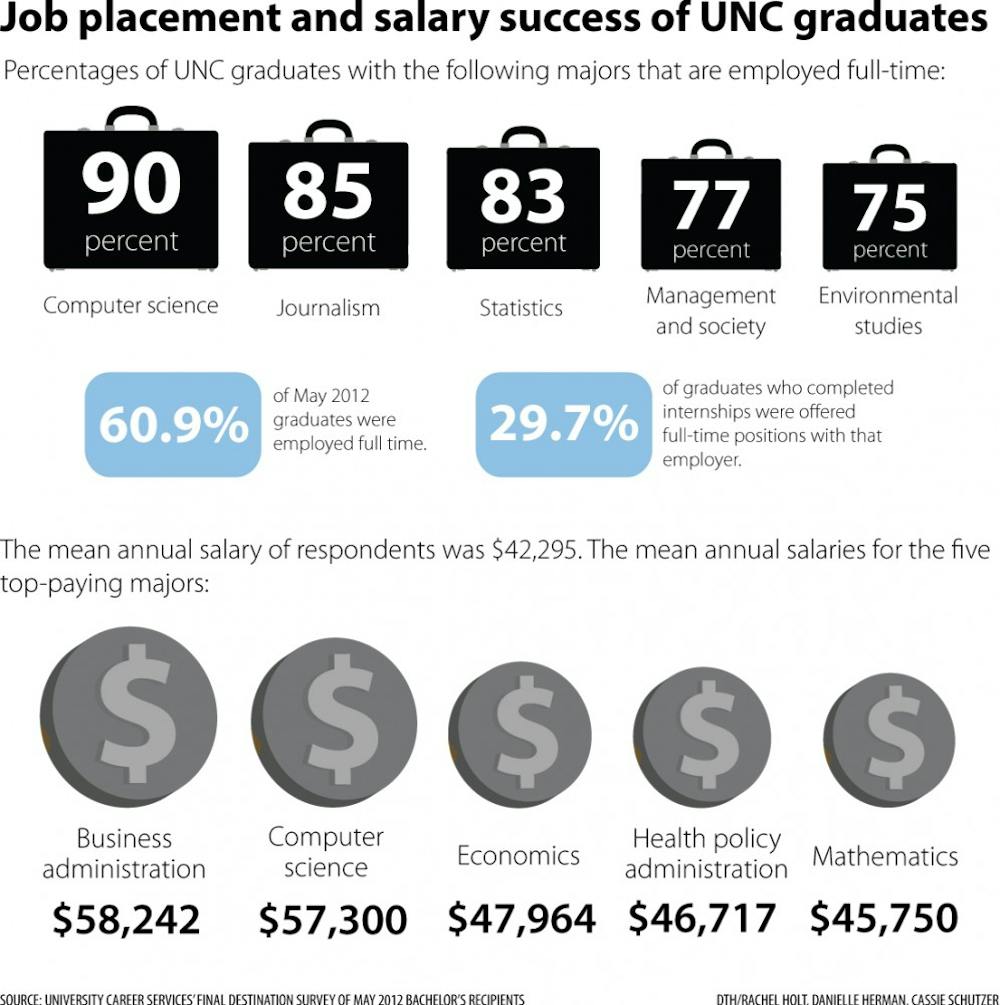While many UNC-system students graduate searching for a dream job, some are eventually forced to consider how they’ll pay tomorrow’s water bill.
Average starting salaries vary across the state and depend on the type of degree. But despite increasing state emphasis on technical skills rather than liberal arts, many students from both types of backgrounds said they have struggled finding the ideal job.
The average starting salary of undergraduates was $42,784 at UNC-CH may first destination external report.pdf, $46,521 at N.C. State University and $40,084 at UNC-Charlotte PGS Final Report.pdf for the class of 2011, according to surveys conducted by each university.
Ray Angle, director of UNC-CH’s University Career Services, said he was not surprised by the results.
He said for many students, the top concern is not money, it is what they can contribute to society.
Angle said many UNC-CH graduates go into social justice-related positions, including one-eighth of both of the past two graduating classes that applied for Teach for America.
According to a 2013 survey by the National Association of Colleges and Employers, the No. 1 value graduates look for in a job is the opportunity for personal growth, while job security is third, good benefits is fourth and a high starting salary is 12th.
More N.C. State graduates have science-, technology-, engineering- and math-related degrees while the majority of UNC-CH students go into non-STEM-related jobs, Angle said.
“N.C. State is historically an engineering school, and their starting salaries tend to start out higher,” Angle said. “They also tend to stay fairly stable.”




